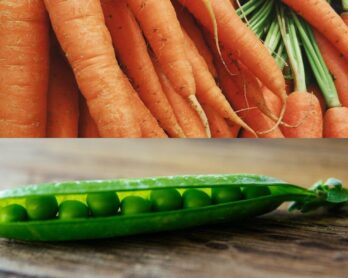The Hidden Powers of the Common Kitchen Herb
When people think of herbs and spices, they often think of the herbs and spices they typically use for cooking. But when considering taking herb for medicinal purposes, they often reach for the exotic herbs and supplements that they find at the health food store.
While finding herbs at the health food store is perfectly acceptable, they can be expensive. Using kitchen herbs for medicine is both highly accessible and affordable. Some of the best remedies come from our own kitchens and there is something immensely satisfying about making your own remedies from simple ingredients.
Making effective herbal remedies to cure common ailments is relatively simple and with the help of the recipes featured here, you’ll be well on your way to creating your very own kitchen pharmacy. Here is a list of the top five kitchen herbs that you can use in your food. Keep in mind that this is an overview. Each herb that is found in your medicine cabinet has a rich and varied history of use. This is only meant to be an introduction.
You can either use these kitchen herbs in cooking as usual or make a tea by steeping one teaspoon of the dried herb and one tablespoon of the fresh herb in one cup of boiling water. Strain and either drink it or use it topically as indicated below.
Parsley
Parsley, both fresh and dried, is a great overall vitamin and mineral booster in the diet. It is particularly high in Vitamin C. It is also great for the urinary tract and is a fairly potent diuretic. Parsley is also a cure for bad breath. Bringing a pint of water and a handful of fresh parsley to a boil in a saucepan can make a refreshing summer drink. Once at the boiling point do not simmer simply strain and cool. Just the thing to revitalize you on a hot day.
Rosemary
Rosemary is also a great addition to the diet. High in antioxidants, it is beneficial in the fight against free radicals. Traditional medicine indicates that it is a good herb to help boost energy and memory, and is also indicated for low blood pressure. When applying the tea or oil externally, it is helpful for muscle soreness and stiffness.
Sage
This is a good herb for sore throats. To make a sore throat gargle, steep two teaspoons of the herb with one cup of boiling water for ten minutes. Strain the herb and gargle. Or, instead of gargling, you can add honey and sip for a nourishing, soothing sore throat remedy.
Cinnamon
Cinnamon is a great antimicrobial meaning it can help kill harmful germs. It is also beneficial to help regulate blood sugar. Just sprinkle a total of ¼ tsp. a day on your food or in your coffee or tea to reap the blood sugar-stabilizing benefits.
Cayenne
Cayenne pepper is also beneficial in the fight against germs. You can also sprinkle the powdered herb in your shoes and gloves during cold weather to help keep your hands warm. Known as a styptic, you can sprinkle some cayenne on a bleeding cut to help stop the flow of blood.
So the next time you are browsing through your collection of culinary herbs and spices bear in mind that the humble kitchen herb can offer you so much more than a boost to the flavor of your roast lamb or the spicy kick in your Cajun sauce.
| Image sources |
|---|











